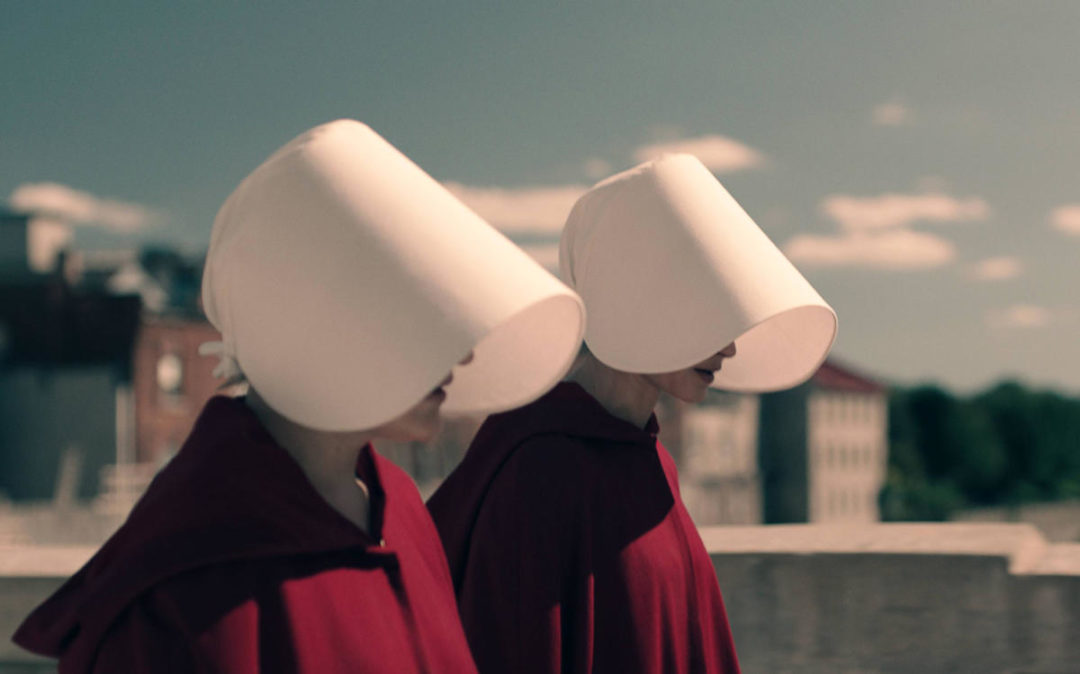I eventually chose Liberty University for grad school– mostly because of Kevin Roose’s book The Unlikely Disciple: A Sinner’s Semester at America’s Holiest University. I picked it up in Barnes and Noble while I was still at my fundamentalist college, mostly for kicks and giggles. The subtitle about “America’s Holiest University” amused me, mostly because it exposed how little anyone really knows of places like Bob Jones, or Pensacola Christian, or Hyles-Anderson– all of which make Liberty University look tame. BJU and PCC like to think of themselves as big stuff– and they are, in fundamentalist homeschooling circles, but… well, PCC’s student population hovers right around 4,000 students. That’s miniscule compared to Liberty’s 12,000, and that’s nothing compared to Michigan’s 45,000.
But, the book made it seem that Liberty was a place I could potentially fit in– and grow. It is still a conservative evangelical university, and the administration is famous for various stunts including disbanding the Democratic student organization. It is also still very much Jerry Falwell’s school, a man who came onto my radar for the first time when he claimed on national television that hurricane Katrina was punishment for America’s toleration of homosexuality. Needless to say, I knew what I was getting myself into.
However, I was also terrified of secular colleges. I had been told, my entire life, that if you went to a secular college, you were going to be mocked, persecuted. You’d fail classes because your liberal professors would single you out for your Christian beliefs. You’d either have to compromise your faith to survive, especially in graduate school, or you would be stifled and silenced. One of my English professors told my senior-level literature class nightmare stories about the trauma she endured while in graduate school– all those horrific, ugly, nasty, perverted books like The Awakening by Kate Chopin or anything written by Virginia Woolf. Basically, if a woman wrote it post-1850, it was suspect as a work of literature. She told us all about how literary theory classes were nothing more than liberal indoctrination, and how being a Christian made it impossible for her to have an equal part in any class discussions, because she was always dismissed by her fellow students.
Plus, Oregon and Brigham Young wouldn’t accept my non-accredited degree. Liberty had a long history of accepting students from my college, and I didn’t want to have to start over.
But, I had to get over some hurdles first.
I took the GRE after studying for it for three weeks. That is not enough time to study for the GRE, by the way. Not if you know next to nothing about math, which I did not. Also, the reading comprehension bits are not usually narrative. They’re non-fiction, and can get incredibly technical. Blech.
I had to go off-campus, again, to submit my application and print out the graduate assistant application so I could mail that in. My family does not have an over-abundance of wealth, and there was no way I was going to exist under a mountain of student loans when Liberty was willing to pay for my education. I had all of that submitted by November, about a month before my graduation. I’d applied for Liberty’s spring semester, although I knew that was a long shot.
I did get accepted, but for the following Fall.
I started celebrating, and that was when I started encountering opposition.
My Sunday school teacher from my youth was incredulous that I would even consider going to such a “party school.” She told me that Liberty had co-ed dorms and no restrictions- that the entire school existed to accept the students who couldn’t hack it at “real” Christian colleges. She told me that if I went there, I’d be in constant danger of spiritual and physical corruption.
When I was discussing post-graduation plans with my co-workers and announced that I’d be going to Liberty in September, she reached over, took my hand, and told me that she would “be praying for me,” that I would “see the light,” and “come to my senses”– that I would realize that my “true place” was in the “center of God’s protection,” and that I’d stop “rebelling against what I knew to be true,” and that I needed to stay at my undergrad institution– if I wanted to pursue a graduate degree at all, which she didn’t “feel was wise for a woman to do.”
Both of those were fairly easy to laugh off as ridiculous– because they were. Utterly and completely. Even back then I knew that they were crazy.
A more difficult conversation was with my parents. I told my mother I’d applied and been accepted to Liberty, and her response was that I’d “have to discuss it with my father.”
Those words were ominous, and filled me with dread. What if my father said I couldn’t go? What would I do? I was realizing every day how fervently I wanted–needed— this step forward.
When I did, eventually, talk to my father, the conversation did not go well. He told me that he did not think going all the way to Virginia for grad school was a good idea, that a daughter shouldn’t be so far away from home. That, if I went, I’d be “outside the umbrella of his protection,” and had I considered going to grad school online, or a Christian school closer to home?
It was difficult to explain that online master’s degrees in English were not really worth the time or money, and that the schools near home were too conservative for me– if they offered grad programs at all, which few did– and none in English. “Well, why did it have to be English?” he asked, and then I had to explain about my dream of becoming an editor. My father’s concern, at that point, shot through the roof. Become an editor? Move to New York? That was insane– impossible. I could not do that, was incapable of ever doing that. I had no idea of what the real world is like, he told me, and trying to make it on my own, outside of the protective shield of my parents, would destroy me. I should give up on that immediately and find a more realistic option. I could go to work at the same company my father worked at, be a communications or marketing assistant if I really wanted to get into editing. That way, I could stay at home and skip all of my ridiculous notions of making it as an editor, on my own.
When Liberty told me that even though I had been accepted into their graduate school, there was no room in the GA program, it felt like a crushing defeat. It felt like God had slammed the door in my face just to prove my father right. I couldn’t do it. I should just go home.
So I did.
I went home.
I got a soul-sucking job as a teller, and every day I came home with another example of how I couldn’t make it in the real world. I wasn’t cut out for it. Wasn’t designed for it.
That lasted for eight months– until I got an email from the director of the GA program asking if I was still interested in the program.
Was I still interested? Was he kidding me?!
Nervous, borderline nauseated, I called my father at work and asked him what I should do.
One of the things I have always appreciated about my father is that he is never hasty. He has the patience of an oak, and can wait out nearly any storm. He also takes questions like this one seriously, and he’s never rushed just so he could give me an answer. Usually, when I ask him for advice, his response is that he would pray about it– and he would tell me what he thought a few days, maybe a few weeks later.
So his response shocked me.
“You should go.”
His answer was immediate, without hesitation. Firm. Sure.
“Really? I’d have to be there in two weeks.”
“Yes. Go into work tomorrow and tell them you quit.”
So I did.
Two weeks later I was in Lynchburg, Virginia.












